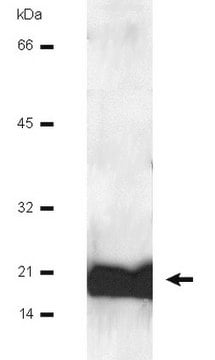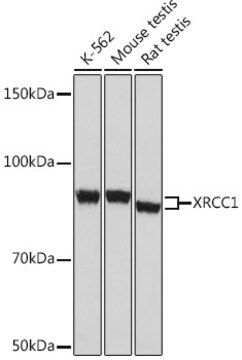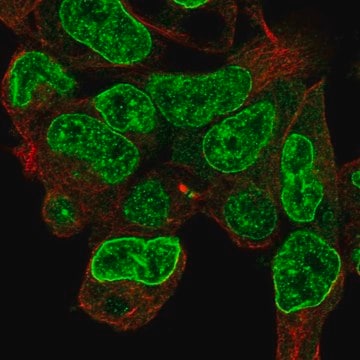PLA0046
Rabbit anti-ATR Antibody, Affinity Purified
Powered by Bethyl Laboratories, Inc.
Sinónimos:
FCTCS, FRAP-related protein 1, FRAP-related protein-1, FRP1, MEC1, SCKL, SCKL1, ataxia telangiectasia and Rad3 related, ataxia telangiectasia and Rad3-related protein, homolog, homolog (S. cerevisiae), mitosis entry checkpoint 1
About This Item
Productos recomendados
biological source
rabbit
Quality Level
antibody form
affinity purified immunoglobulin
antibody product type
primary antibodies
grade
Powered by Bethyl Laboratories, Inc.
species reactivity
human
technique(s)
immunoprecipitation (IP): 2- 5 μg/mg
western blot: 1:2,000-1:10,000
accession no.
NP_001175.1
UniProt accession no.
shipped in
wet ice
storage temp.
2-8°C
target post-translational modification
unmodified
Gene Information
rabbit ... ATR(545)
General description
Immunogen
Biochem/physiol Actions
Physical form
Other Notes
Disclaimer
¿No encuentra el producto adecuado?
Pruebe nuestro Herramienta de selección de productos.
Storage Class
12 - Non Combustible Liquids
wgk_germany
nwg
flash_point_f
Not applicable
flash_point_c
Not applicable
Certificados de análisis (COA)
Busque Certificados de análisis (COA) introduciendo el número de lote del producto. Los números de lote se encuentran en la etiqueta del producto después de las palabras «Lot» o «Batch»
¿Ya tiene este producto?
Encuentre la documentación para los productos que ha comprado recientemente en la Biblioteca de documentos.
Nuestro equipo de científicos tiene experiencia en todas las áreas de investigación: Ciencias de la vida, Ciencia de los materiales, Síntesis química, Cromatografía, Analítica y muchas otras.
Póngase en contacto con el Servicio técnico





